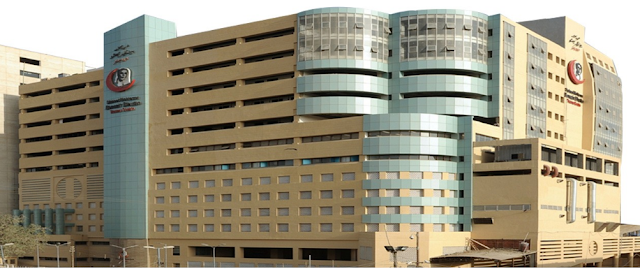Road accident, violent crime cases overwhelm Sindh's emergency services
54,405 women, 38,249 minors among 175,908 patients treated at SMBBIT in 2024
By Mukhtar Alam
KARACHI: The Shaheed Mohtarma Benazir Bhutto Institute of Trauma
(SMBBIT) in Karachi and its associated trauma and emergency response centre in
Larkana collectively treated an average of 261 cases per day, comprising 240
road traffic accidents (RTA), nine gunshot wounds, and 12 assault cases,
accounting for nearly 40% of total emergency patients they registered daily, according
to the institute’s data of 2024.
Quarters concerned note that this trend is a stark reflection of
the broader societal issues plaguing the Sindh province. “The alarming rise in
road traffic accidents and violent crimes is a clear indication of the
inadequacy of traffic infrastructure and enforcement, as well as the
ineffectiveness of government initiatives to improve road safety,” they say.
Furthermore, the growing intolerance among individuals is seen as a major contributor to the surge in violent crimes, ultimately putting immense pressure on the already overstretched healthcare system, observers add.
During 2024, SMBBIT Karachi registered 175,908 patients, including
54,405 (31%) women, against a total registration of 186,846 cases in 2023. The
last year’s emergency patients included 38,249 (22%) under-16-year patients,
45,986 (26%) of 16-25 years age, while 91,763 (52%) were above 25 years.
The SMBBIT is providing free of cost treatment to patients faced
with physical trauma and surgical emergencies or are undergoing life
threatening conditions.
The data reveals that 3,600 patients belonging to Balochistan also
reported to the institute in 2024, while it registered a maximum of 168,888 patients
(96% of the total influx) from Karachi, followed by 771 from Thatta, 336 from
Hyderabad, 255 from Larakana and other districts of the province.
The data acquired from SMBBIT showed a 6% decline in the number of
patients in 2024, compared to the figure of 186,846 for 2023. Earlier, the
number of registered ones kept increasing every year from the year 2017
(110,804) to 2019 (141,418), with another reduction recorded in cases in 2020
(117,154), which increased yearly till 2023.
In addition, the data suggests a continued surge in the RTA cases at the Karachi centre from 2020 (19,768; i.e. 17% of the total cases recorded for the year) to 2024 (47,922; i.e. 27% of the total). The gunshot cases also registered a yearly increase i.e. 382 in 2020 to 2,016 in 2024.
The Trauma and Emergency Response Centre of Larkana, which was
made functional in June 2023, saw substantial surge in the total yearly
registration from 21,760 (2023) to 74,341 (2024). It registered 4,297 assault
cases, 1,150 gunshot cases and 21,557 cases with the history of falls in 2024.
Overall, the trauma centre of Karachi accounted an average 482
emergency cases per day in 2024, against 204 per day of the Larkana centre
during the year.
SMBBIT Executive Director Dr M Sabir Memon shared with Social Track that all the registered
patients got equal treatment and quality services they needed under one roof
free of cost. The services included laboratory tests, diagnostic radiology, CT
scan, ultrasound, X-ray, MRI, echocariography, fluroscopy, Orthopantomagram (OPG) and interventional radiology and IR procedures, he said,
maintaining that around 35 surgeries were performed every day at Karachi and
Larkana centres in 2024.
At the same time he emphasised strengthening of public sector secondary healthcare services in all districts, including those in Karachi division. General surgeons and orthopedic surgeons are available in the district health institutions, who could be motivated and capacitated further towards development of an integrated trauma care system, ensuring immediate services to trauma patients in a short time, which in return may lessen the life threatening conditions among deserving patients and overcrowding of the specialised trauma establishments including SMBBIT, he added.
Replying to a question, Dr Memon said that 20-25% of the RTA cases pertain to motorbikes –either the bikers or people travelling with them. The rise in RTA cases has necessitated increasing awareness among vehicle drivers, particularly reducing use of mobile phone while driving, he said, adding that the preventive measures will certainly lead to significant decrease in RTA cases, thus saving the precious lives and financial resources of the RTA victims as well as the health establishments of the government.
A senior photographer covering civic life and amenities,
requesting not to be named, remarked that awareness campaigns on road safety
aspects are often undertaken with casual approaches to discipline the
motorists, but little care is given to the deteriorated condition of roads, large-scale
encroachments and dilapidated infrastructures, particularly out-of-order
traffic signals and unmotorable patches
of roads.
Report Courtesy: Social Track, Karachi. Photos and graphics courtesy: SMBIBT








Comments
Post a Comment